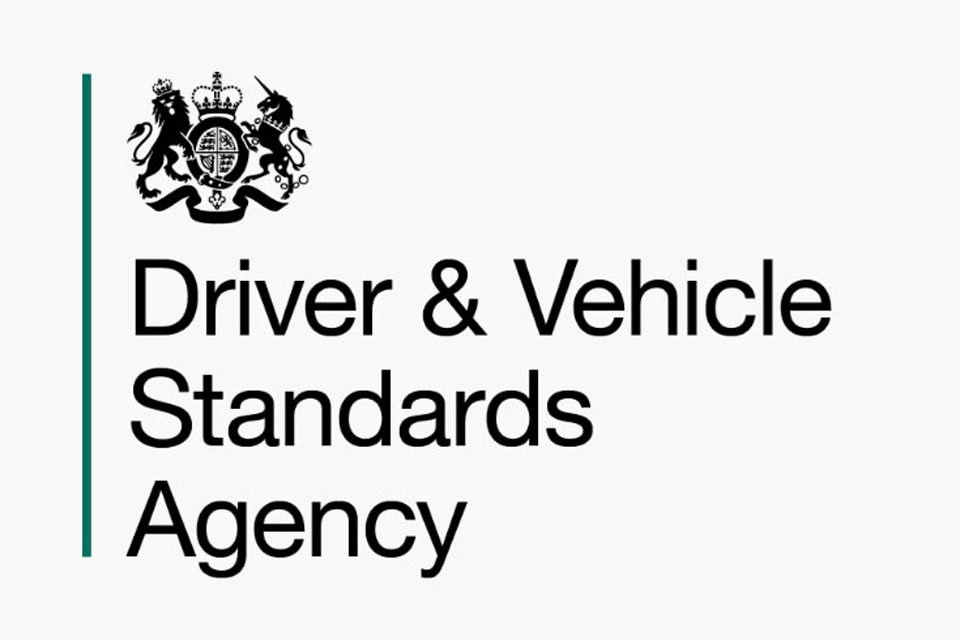
Introduction to Driving Lessons
What Are Driving Lessons?
Driving lessons are structured sessions provided by a qualified driving instructor to teach novice drivers how to operate a vehicle safely and confidently.
These lessons cover both theoretical knowledge and practical skills needed to navigate the roads. While driving lessons can be highly beneficial for certain individuals, their worth ultimately depends on personal preferences, learning style, and availability.

For many, these lessons provide a structured learning environment which can be invaluable. For others, particularly those with access to a private vehicle and a supervising driver, lessons might complement more informal practice.
Key Components of a Driving Lesson
A typical driving lesson involves several key components that ensure comprehensive learning. These include practical driving practice, where learners get hands-on experience operating a vehicle under supervision, and theoretical instruction, which covers:
- Traffic laws
- Vehicle maintenance
- Safe driving practices.
Lessons also often include scenario-based training to help learners anticipate and react to real-world driving situations such as navigating busy intersections, driving in adverse weather conditions, and understanding emergency procedures.
The Role of a Qualified Driving Instructor
A qualified driving instructor plays a crucial role in the journey of a learner driver. These professionals (ADI’s) are approved by the DVSA and have undergone rigorous training to understand not only the mechanics of driving but also the best pedagogical approaches to teach driving effectively.

They provide structured guidance, ensuring that all aspects of driving are covered systematically, and adapt their teaching methods according to the learner’s progress and comfort levels.
Benefits of Professional Driving Lessons
Accelerated Learning Curve
One of the major benefits of professional driving lessons is the accelerated learning curve they provide.
Unlike informal learning with friends or family, professional driving instructors follow a curriculum that is designed to cover all essential driving skills efficiently.

This structured approach can significantly reduce the time it takes to become ready for the driving test, as each lesson builds upon the previous one in a logical and progressive manner.
Safety Benefits and Risk Reduction
Professional driving lessons also offer significant safety benefits and help in risk reduction. Learning from a qualified instructor ensures that learners are taught the safest driving practices from the start.
Instructors can correct bad habits that could potentially lead to dangerous situations.
Furthermore, most driving schools provide dual-control cars, which means the instructor can take control of the vehicle in potentially hazardous situations, greatly reducing the risk of accidents during lessons.
Building Confidence and Road Awareness
Another important benefit of taking professional driving lessons is the role they play in building confidence and enhancing road awareness.
New drivers often feel anxious about driving, which can impact their ability to make decisions on the road.
Through regular driving lessons, learners gain confidence as they master control of the vehicle and navigate various traffic situations under the guidance of their driving instructor.
Enhanced road awareness comes from being exposed to different driving conditions and learning to anticipate and respond to other road users’ actions.
Comparing Self-Taught and Professional Driving Lessons
Legal Requirements and Limitations
When comparing self-taught driving and professional lessons, it’s important to understand the legal requirements and limitations that apply in the UK.
Legally, a learner driver must be supervised at all times by an individual who is at least 21 years old and has held (and still holds) a full driving licence for a minimum of three years.
However, approved driving instructors (ADI) hold additional qualifications, including being DVSA (Driver and Vehicle Standards Agency) approved, which ensures they meet high teaching standards.

Self-taught drivers might miss critical learning points or develop bad habits without the structured feedback that a professional can provide.
Efficiency of Learning
The efficiency of learning is significantly higher in professional lessons compared to self-taught methods.
Professional driving instructors use proven teaching methods that are updated with the latest traffic laws and best practices.
This structured approach helps learners progress more quickly and comprehensively.
In contrast, self-taught learners may struggle with inefficient progress and possibly overlooked vital driving skills and knowledge, which can extend the learning period and potentially lead to more mistakes.
Long-Term Benefits of Driving Instructor Guidance
The long-term benefits of professional guidance cannot be overstated. Professional instructors not only teach driving techniques but also instil safe driving habits that last a lifetime.
They prepare drivers to handle a wide range of situations on the road, reducing the likelihood of accidents.
Furthermore, professional guidance often results in a higher pass rate on the first driving test attempt, saving time and frustration that often accompanies multiple test attempts.
Cost Analysis of Driving Lessons
Typical Costs of Driving Lessons
The typical costs of professional driving lessons in the UK vary by location and the instructor’s credentials but generally range from £25 to £50 per hour.
Many driving schools offer discounts for booking block sessions, which can reduce the overall cost.

While initially, this might seem expensive, investing in quality education ensures that all necessary driving skills are covered effectively, potentially reducing the number of lessons needed to reach test standard.
Cost Comparison with Potential Fines and Retests
When considering the cost of driving lessons, it’s also useful to perform a cost comparison with the potential expenses of fines, retests, and increased insurance premiums that can result from inadequate training.
Failing the driving test multiple times due to poor preparation or bad driving habits can lead to significant additional costs, including the rebooking of tests and possibly more lessons.
Furthermore, the risk of fines or accidents due to inadequate driving skills can lead to long-term financial burdens.
Investment in Safe and Skilful Driving
Viewing driving lessons as an investment in safe and skilful driving puts the costs into perspective. Spending money on professional instruction ensures you learn correct and safe driving techniques from the outset.
This not only prepares you for your test but also equips you with the skills necessary for a lifetime of safe driving, potentially saving money on vehicle repairs, insurance, and fines for traffic violations in the long run.
This investment significantly outweighs the initial cost and supports the value of professional driving lessons.
What to Expect from Driving Lessons
Structure of a Typical Lesson
The structure of a typical lesson in driving usually begins with a review of the previous lesson’s content, addressing any questions or concerns that might have arisen since then.
The instructor will outline the objectives for the current lesson, which may include new manoeuvres or reinforcing previously learnt skills.
Each lesson typically lasts between one and two hours, during which the instructor provides real-time feedback and guidance, ensuring that the learner has ample opportunity to practice and improve.
Learning to Handle Different Driving Conditions
Learning to handle different driving conditions is a critical component of comprehensive driving lessons.
Driving instructors ensure that learners experience a variety of driving environments, such as urban streets, country roads, dual carriageways, and different weather conditions.
This exposure helps build the learner’s ability to adapt their driving to any situation, increasing their safety and confidence behind the wheel.
Preparing for the Driving Test
Preparing for the driving test involves more than just mastering vehicle control; it includes understanding test procedures, potential routes, and typical test including the ‘show me, tell me‘ questions.
Instructors will provide specific training that targets the driving test’s requirements, including how to perform manoeuvres under test conditions and how to deal with test-day nerves.
This preparation is crucial in giving learners the best chance to pass their test on the first attempt.
Success Rates: With and Without Professional Lessons
Pass Rates of Learners with Professional Lessons
Pass rates of learners who take professional lessons tend to be significantly higher than those who do not.
Statistics show that learners who are instructed by professional driving teachers are more prepared and confident, which translates into higher first-time pass rates.

These instructors use methods that have been honed over years of teaching, which are effective in not just handling the car, but also in understanding and following the rules of the road.
Statistics on Retests
Statistics on retests reveal that learners who do not take professional driving lessons are more likely to require multiple attempts before passing the driving test.
The lack of structured learning and professional feedback often leads to gaps in knowledge and skills, which can result in failing the test.
By contrast, those who invest in professional lessons generally have a more solid foundation, which decreases the likelihood of needing retests.
Anecdotal Evidence and Testimonials
Anecdotal evidence and testimonials from learners who have taken professional lessons frequently highlight the benefits of structured and guided learning.
Many learners attribute their success directly to the expertise and support of their driving instructors.
Testimonials often praise the comprehensive nature of professional instruction and the personal confidence gained through the process, further advocating for the investment in professional driving lessons.
Making the Decision
Assessing Your Personal Situation
When deciding whether to take professional driving lessons, it’s crucial to assess your personal situation. Consider your current driving skills, how quickly you learn new skills, and your level of comfort and confidence behind the wheel.
If you have had some driving experience, such as practising with family or friends, you might need fewer lessons.

However, if you are a complete novice or feel anxious about driving, professional lessons can provide the structured learning environment necessary to build your skills and confidence effectively.
Considering Your Budget and Time Availability
Considering your budget and time availability is also vital. Professional driving lessons can be a significant financial commitment, so it’s important to plan accordingly.
Evaluate how much you can realistically afford to spend on driving lessons and examine your weekly schedule to determine how much time you can dedicate to learning to drive.
Remember, more frequent lessons might lead to faster progress, which can sometimes offset the total cost by reducing the total number of lessons needed.
How to Choose the Right Driving School or Instructor
Choosing the right driving school or driving instructor is one of the most important decisions you will make in your journey to becoming a licensed driver.
Look for a driving school or instructor with a good reputation and positive reviews. It’s essential that they are approved and registered with the DVSA (Driver and Vehicle Standards Agency).

Additionally, consider their pass rate, the types of courses they offer, whether they provide lessons in an automatic or manual car depending on your preference, and the overall cost.
Meeting with the instructor beforehand can be beneficial to ensure you feel comfortable with their teaching style and personality.
Frequently asked questions
Bring your provisional driving licence. It’s also recommended to wear comfortable, flat footwear and clothes suitable for moving around in the driver’s seat easily.
This can vary, but most instructors will start with some basic theory and car controls before having you drive. You might start driving in a safe, quiet place to get accustomed to the feel of the car.
The first driving lesson usually lasts between 1 to 2 hours. This allows enough time to cover the basics without overwhelming you.
You’ll first learn about the cockpit drill, which includes adjustments for your seat, mirrors, and steering wheel, and learning about the car’s controls such as the indicators, lights, and wipers.
Yes, feeling nervous is completely normal. Your instructor will understand this and will likely start off slowly to build your confidence.
Making mistakes is a normal part of learning. Instructors expect this and will guide you on how to correct them safely. It’s all part of the learning process.
Typically, the first lesson takes place on quiet, less busy roads to help you build up your basic skills and confidence before tackling busier roads in future lessons.
Most lessons will go ahead in poor weather as it’s important to experience driving in different conditions. However, in extreme conditions like heavy snow or ice, your instructor might reschedule the lesson for safety reasons.
Usually, it’s recommended to have just the learner and the instructor in the car. This helps keep the focus on learning without distractions.
After your first lesson, reflect on whether you felt comfortable with the instructor’s teaching style and personality.
A good sign is if you understand their instructions clearly and feel supported. If not, it might be worth considering a different instructor.


